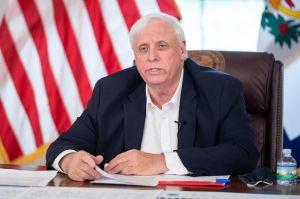Material Goods and The Pursuit of Happyness
Will Smith's latest movie, The Pursuit of Happyness, stands as an extended argument underscoring the truth of conservative values. This may sound like an improbable anomaly given the traditional political, ethical, and social allegiances of Hollywood, but the power of the story lies in its basis in fact, and this in turn prevents it from being appropriated as a tool for liberal political ideology.
The narrative is inspired by the true life experiences of Christopher Gardner, a struggling and homeless single father turned successful stockbroker and CEO. The story begins in 1981, as the nation was beginning to emerge from the dark economic period inaugurated under the administration of President Jimmy Carter. Early on the protagonist is watching a television address by Ronald Reagan, outlining the woeful fiscal climate of the country, with record deficits and unemployment. The national unemployment rate for the first few years of the 1980s hovered between 7.1 and 9.7 percent. By 1989 the rate would be at a decade low of 5.3 percent.
In real life, Christopher Gardner speaks of his "spiritual genetics," a legacy of religious affection inculcated in him by his mother. Religious elements in the film are understated but nevertheless present. One of the film's great moments of emotional catharsis occurs in the context of a gospel worship service.
On another occasion, Christopher's son, played by Will Smith's own son Jaden Christopher Syre Smith, tells a joke:
There was a man who was drowning, and a boat came, and the man on the boat said "Do you need help?" and the man said "God will save me". Then another boat came and he tried to help him, but he said "God will save me", then he drowned and went to Heaven. Then the man told God, "God, why didn't you save me?" and God said "I sent you two boats, you dummy!"
The point of the joke and its place in the film is that God normally works his providential will through natural means.
An instance of this providential work comes in Gardner's relationship with his job as the movie begins, as a salesman of bone density scanners. The credulous Gardner has invested his family's savings into purchasing a stock of these devices, which he can in turn sell to his exclusive market of San Fransisco area medical centers. In order to finance their living expenses for the duration of an unpaid internship (his entry into the stockbroking profession), Gardner must sell all of his remaining scanners.
At one point Chris Jr. and his father fancifully imagine that the scanner is a time machine, and Chris Sr. uses this as an opportunity to distract his son from their dire circumstances. They pretend that they have traveled back to prehistoric times and must seek refuge from the marauding dinosaurs. This imaginative playfulness belies the fact that they must spend the night in a subway station bathroom, one of the more touching scenes in the film.
But the scanner truly is a "time machine" in a metaphorical sense. When Gardner has finally sold the final machine, he describes it as an injection of "four more weeks" of oxygen. The sale of the machines, cashing in on their capital value, represents much needed time to complete the critically important internship at Dean Witter.
Absent from the movie are traditional hallmarks of liberal criticism of the market economy: Gardner's story is one that occurs within an America conceived as a meritocracy rather than one defined by racism or class struggle.
All of the rich white characters in the film, with one possible exception, treat Gardner with respect, fairness, and dignity, even compassion. And Gardner does in fact fight against poverty, but he does so within a context that ultimately rewards his hard work and intelligence. While there are striking images that display the contrast between rich and poor, Gardner's financial success as a stockbroker is actually dependent upon the creation of wealth through entrepreneurship and enterprise in the stock market.
The Pursuit of Happyness succeeds as a broad meditation on the themes of liberty and justice articulated in The Declaration of Independence. In an ironic twist on Jefferson's conception of the role of government, Gardner quotes the language of the first draft of the Declaration, which ultimately was not adopted, that speaks about the "disturbers of our harmony."
The greatest disturber of Gardner's harmony and the largest obstacle in his pursuit of happiness turns out to be the government itself, when it seizes $600 from Gardner's bank account for overdue taxes, leaving him with less than $25. It is at this point in the story when Gardner and son are finally evicted from their last hotel room and must seek refuge in the beds of the Christian mission's homeless shelter.
Gardner is understandably and perhaps justifiably incensed: "That's my money! They can't just take it!" The desperation in Gardner's character is as much a result of his devotion to his son and his valiant efforts to meet his parental responsibilities as anything else. When Chris' wife leaves the family for New York, he repeats emphatically of his son, "Christopher is staying with me."
Augustine reiterates the classical depiction of the common filial bond in a father's attitude toward his son, saying, "Surely what Cicero says comes straight from the heart of all fathers, when he wrote: 'You are the only man of all men whom I would wish to surpass me in all things'." So much of what Gardner does in Pursuit is aimed at the welfare and betterment of his own child. Thus, he tells young Chris, "You got a dream, you gotta protect it. People can't do something themselves, they wanna tell you that you can't do it. You want something? Go get it. Period."
The Pursuit of Happyness is well worth seeing, as a life lesson in the value of hard work and devotion to family. The series of pitfalls and the breathless, stressful, non-stop pace with which Gardner seeks to overcome these challenges underscores the nature of the pursuit of happiness in this world:
It was right then that I started thinking about Thomas Jefferson, the Declaration of Independence, and our right to life, liberty, and the pursuit of happiness, and I remember thinking, "How did he know to put the pursuit part in there?" That maybe happiness is something we can only pursue, and maybe actually we can never have it, no matter what. How did he know that?
The spiritual realities that are implicit in the film but come through in the real life story of Chris Gardner, who has manifested his faith in part through is work with the Glide United Methodist Church in San Francisco, hint at the truth that our happiness is dependent on the orientation of our use of earthly goods toward a reality greater than ourselves. Seeking happiness in only material or transient objects is necessarily a fleeting experience.
Even so, the story of Chris Gardner illustrates the best that is possible within this worldly order, wherein earthly goods enable a measure of peace, while at the same time still pointing to the ultimate peace that is only achievable on the basis of a transcendent divine reality.
_______________________________________________
Jordan J. Ballor is associate editor with the Acton Institute for the Study of Religion & Liberty in Grand Rapids, Mich.





























